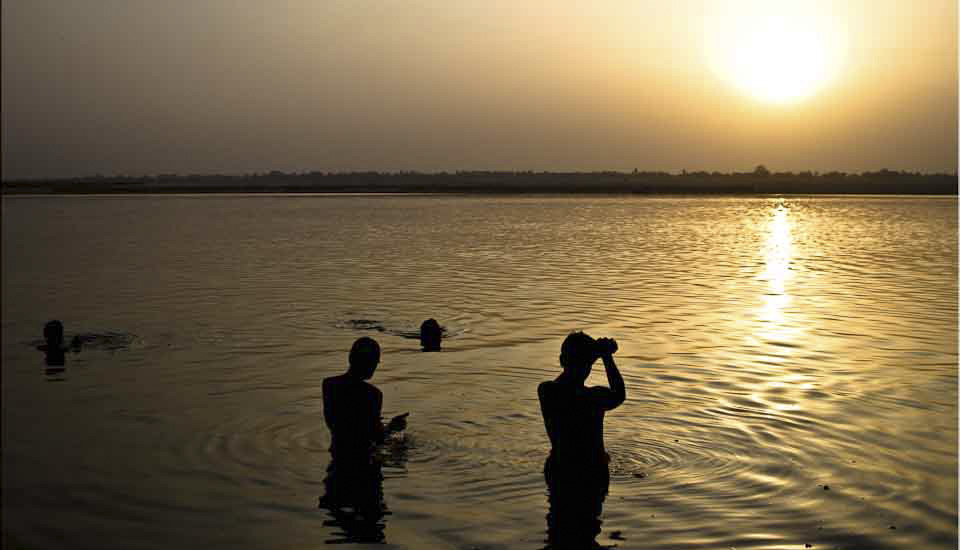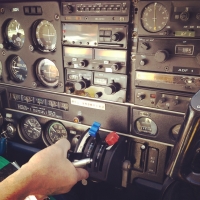.jpg)
A Tunnel on the Flåmsbana
It is only a 20.2-kilometer (12.6 mi) trip, but the rail descent from Myrdal, Norway, to Flåm in the valley below, takes in 20 tunnels and some magnificent scenery.
Norwegian tourism sites are quick to tell you that a trip on the Flåmsbana – the Flåm Railway – is one of the most beautiful train journeys in the world, and it certainly is impressive!
I love train travel, and European trains are an absolute treat.
The Flåm Railway line takes less than an hour each way, but it is one of Norway’s most popular attractions, and has earned its mention in Lonely Planet and National Geographic travel guides.
The Flåmsbana is an engineering marvel that took 20 years to build. First opened in 1941, the 20.2-kilometers (12.6 mi) of winding standard-gauge track comprises 20 tunnels – many of which were built by hand, and some of which house the Flåm River, rather than the train itself. With a top gradient of 5.5 percent (1:18), it is one of the steepest adhesion-type railways in the world, and is the steepest standard-gauge railway in Europe.
As the the train drops 866 meters (2,841 ft) between its endpoints at Myrdal, a stop along the Bergen – Oslo line, and the tiny village of Flåm, which sits at sea level in the valley below, it winds through a jaw-dropping landscape of steep-sided mountains, picturesque hamlets, and stunning waterfalls.
Come ride the rails with me!
.jpg)
Myrdal Railway Station
The Flåm train timetable dovetails with the train service that runs between Bergen and Oslo. My starting point was Bergen; the little mountain station of Myrdal at the head of the Flåm line is just under two hours east.
.jpg)
Sun over Myrdal Station
In my head it was Spring, but the afternoon sun angled low as we pulled out of the station. We are a long way north – 60 degrees north, to be precise – and the Norwegians call this season ‘late winter’. Indeed, there were very few signs of Spring around under the piles of snow!

Bridge Pylons
Before long, we have stunning views down into the river valley far below.

Kjosfossen Station
We emerge from our first tunnels for a photo-stop at Kjosfossen.

Kjosfossen
The afternoon sun was not my friend! It worked against me as I tried to pick out the details around this waterfall system. The very-noisy Kjos Waterfall drops a total of 225 m (738 ft), with the longest drop being 93 m (305 ft).

Rail-Line on the Hill
Looking up in the other direction, you can see the trussed rail line above, giving you an idea how far we have dropped already. Zig-zagging up on the right is the 100-year old Rallarvegen, or Navvies Road, a 20-switchback construction/access road that is now a popular cycling track.

Back inside the Flåmsbana
The vintage train compartments are designed to look old-fashioned, but they are clean, spacious, and comfortable, with large viewing windows (little use in the many tunnels!). I have this carriage almost all to myself!

Hills and Valleys
Emerging from yet another tunnel, it is clear that we are lower down the mountain. Waterfalls are everywhere, …

Red Buildings in the Valley
… as are small settlements.

Towards another Tunnel

Brekkefossen
Another wonderful waterfall comes into view. I walked to this one the next day, as part of my stay in Flåm (see: A Walk in a Norwegian Wood).

Flåmsdalen – Flåm Valley
Here at the base of the mountains and at the head of the head of the Aurlandsfjord (see: On Aurlandsfjord and Nærøyfjord), the grass is green and the land is clearly fertile.

Flåm Skule – Flåm School
All the buildings are tidy, and cheerfully painted to ward off the long shadows and the longer winters.

Flåm Museum
Two days later, I was ready to get back on the train to head up the hill. I had time for a short stop at the free museum …

NSB El 9 Engine
… which outlines the history of the area and of the railroad. This is one of the retired electric locomotives originally purpose-built for the Flåm line – custom-made for steep hills and slow speeds.

Flåm from the Train
I discovered later that I took almost exactly the same pictures going up the hill as I had going down – but the midday-light was quite different. Perhaps it’s not so surprising, though: Flåm truly is a picturesque village!

Brekkefossen – Again!

Trains Meeting
Berekvam, roughly halfway between top and bottom, is the only point on the line with double tracks; …

Modern Flåmsbana Engine
… so, this is the only place you want to see another train coming towards you! The new engines are several generations ahead of the ones we saw at the museum.

Trains Passing

Waterfall in the Valley

Kjosfossen Power Station
Built during World War II, this hydroelectric power plant keeps the electric Flåm Railway running.

Pylons over the Valley

Conductor at Vatnahalsen
The penultimate stop is at Vatnahalsen, where a number of passengers detrain for a stay at an upmarket hotel nearby.

Snaps in the Show
By the time we reach Myrdal to reconnect with the main line, a fluffy flurry of snow is falling.
No wonder the Norwegians call it ‘Late winter’!

But is certainly is beautiful – even in the cold.
Until next time,
Happy Travels!
Photos: 29April2018 and 01May2018






























.jpg)

